Moving to Austin, Texas, USA
Welcome to Austin, Where the Rhythm of Live Music Meets Silicon Hills
Austin, Texas is a unique blend of high-tech vibrancy and artistic soul. As the state capital, it's widely known as both the Live Music Capital of the World and Silicon Hills, nurturing a booming tech ecosystem and reverberating with cultural energy.
From 2021 to 2023, Austin led nationwide growth charts, remarkably, GDP surged by 14.6% and housing stock grew by 9.4% San Antonio Express-News. Its vibrant tech ecosystem attracts major players like Apple, Google, Amazon, Tesla, and Oracle, alongside dynamic accelerators such as Capital Factory. Additionally, Austin now ranks as the top U.S. metro area for STEM professionals, outperforming traditional tech hubs like San Francisco and Boston.
Appeal for Relocation
Whether you're a tech professional eyeing new opportunities or someone drawn to Austin’s lifestyle, here’s why the city checks all the boxes:
- Career & Innovation: A thriving mix of established tech companies and startups fosters opportunity, mentorship, and venture capital circulation.
- Lifestyle & Quality of Life: Live music, festivals like SXSW and ACL, and a welcoming vibe define Austin’s culture.
- Tax Advantages: With no state income tax, professionals see their salaries stretch further.
- Affordability for New Graduates: Austin stands atop national rankings for affordability against income, making it highly attractive for early-career professionals nypost.com.
- Evergreen Growth: Continuous influx of businesses and residents keeps the job market dynamic and community growth steady Express-News.
Lifestyle and Culture
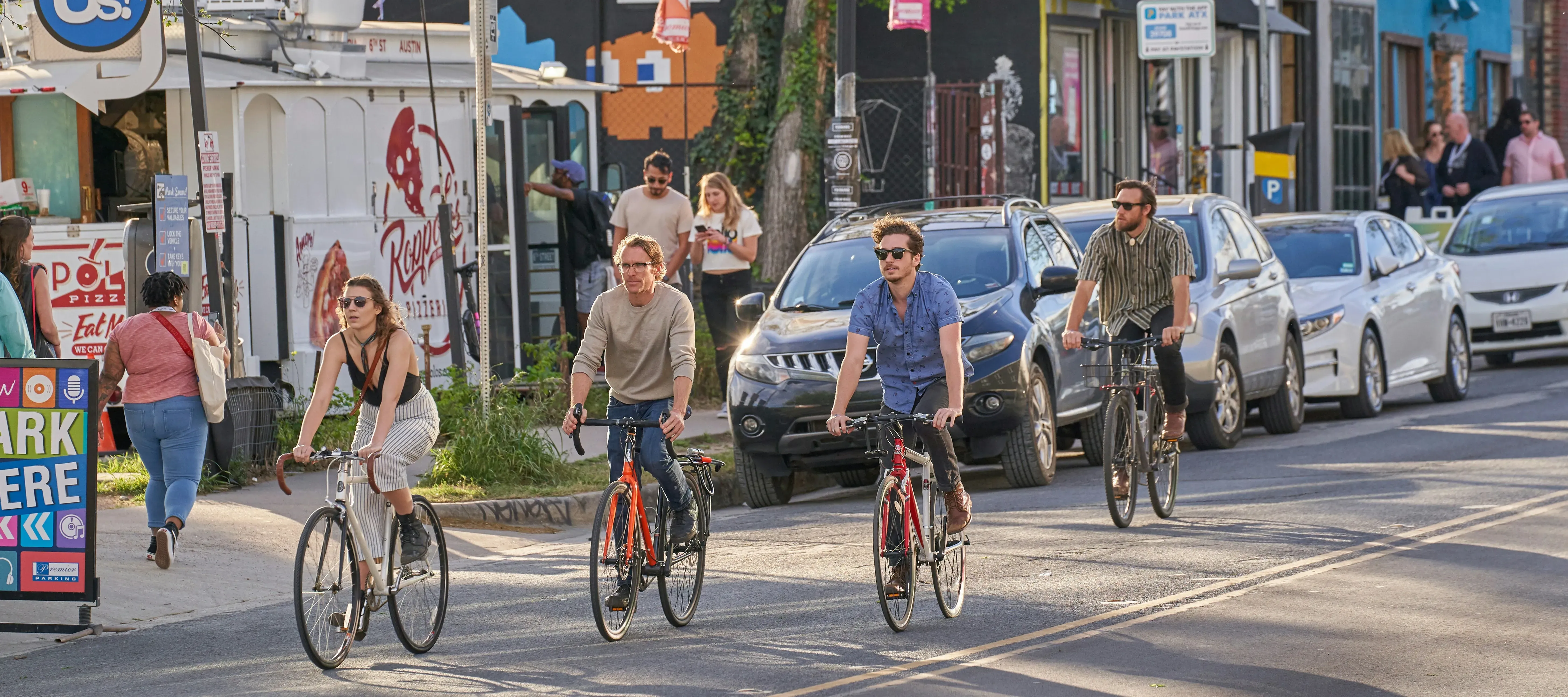
City Lifestyle – Austin’s Energy and Work‑Life Rhythm
Austin pulses with a dynamic rhythm: by day, tech professionals settle into innovation hubs, and by night, the skyline comes alive with live music, creative cuisine, and cultural vibrancy. This city balances ambition with an easygoing spirit; residents often juggle early‑morning runs along Lady Bird Lake with late‑night acoustic sets in backyard bars. The vibe leans more carefree than formal, inviting both entrepreneurial minds and curious social explorers to feel instantly at home.
Public transit is growing, and many choose to bike or walk, especially in neighborhoods like Downtown, East Austin, SoCo, and Mueller, enhancing that seamless blend of “work then unwind” lifestyle.
Cultural Highlights and Attractions – What Makes Austin Unmistakably Austin
-
Live Music & Festivals
Known as the “Live Music Capital of the World,” Austin stages world-renowned events such as South by Southwest (SXSW) and Austin City Limits (ACL). Plus, you can catch nightly talent at cozy venues across the city.
-
Iconic Natural Attractions
Spend a sunset watching bats emerge from beneath Congress Avenue Bridge—one of the largest urban bat populations in North America.
Outdoor lovers will also adore Zilker Park, Barton Springs Pool, and Boulder‑green trails perfect for running, biking, or unwinding in nature.
-
Eclectic Eats & Local Flair
Austin’s food scene is a creative playground, from food trucks to upscale fusion spots. A recent highlight: Lao’d Bar in East Austin, spotlighted on Diners, Drive‑Ins and Dives, brings Southeast Asian street‑food flair fused with community charm.
-
Cultural Anchors & Heritage
Explore East 11th Street, once central to East Austin’s Black community, now ranked among the world’s “coolest streets”, where vibrant new venues sit alongside historic, culturally significant spaces. MySA
-
Historical Layers
The oldest continuously operating grocery store, Avenue B Grocery in Hyde Park (opened 1909), captures Austin’s enduring neighborhood roots and community storytelling.
Popular Neighborhoods – Ideal Picks for Tech Pros and Culture Seekers
Here’s a look at key neighborhoods that effortlessly blend lifestyle, convenience, and community—all backed by credible sources:
1. Downtown Austin
Urban and vibrant—perfect for professionals wanting walkable nightlife, coffee shops, major employers nearby, and cultural hotspots (e.g., Rainey Street, Lady Bird Lake).
2. East Austin
Artsy, historic, and evolving—filled with galleries, murals, food trucks, live‑music joints, and a strong creative pulse. Still relatively affordable, though gentrification is shifting the scene.
3. South Congress (SoCo)
Iconic and artsy—bustling with boutiques, trendy eateries, live‑musicians on every corner, and ideal for those craving Austin’s authentic creative energy.
4. The Domain / North Austin
Modern and upscale—home to tech giants like Amazon, IBM, and others. Perfect for professionals wanting convenience, luxury amenities, and walkable work‑play balance.
5. Mueller
Master‑planned, bike‑friendly, and community‑oriented—with parks, shops, farmers markets, and green spaces a few steps from downtown.
6. Zilker
Laid‑back, outdoor‑focused—walking distance to downtown, adjacent to Zilker Park and Barton Springs, and favored by both singles and families who love an active, nature‑rich lifestyle.
7. Hyde Park, North Loop, Bouldin Creek
Walkable, quirky, and budget‑friendly—rich in historic charm, indie cafés, local shops, and community character, ideal for artists, students, and young professionals.
8. Clarksville
Charming and quieter—full of tree‑lined streets, historic homes, and a peaceful vibe while still being close to downtown and community coffee spots.
Cost of Living in Austin, Texas
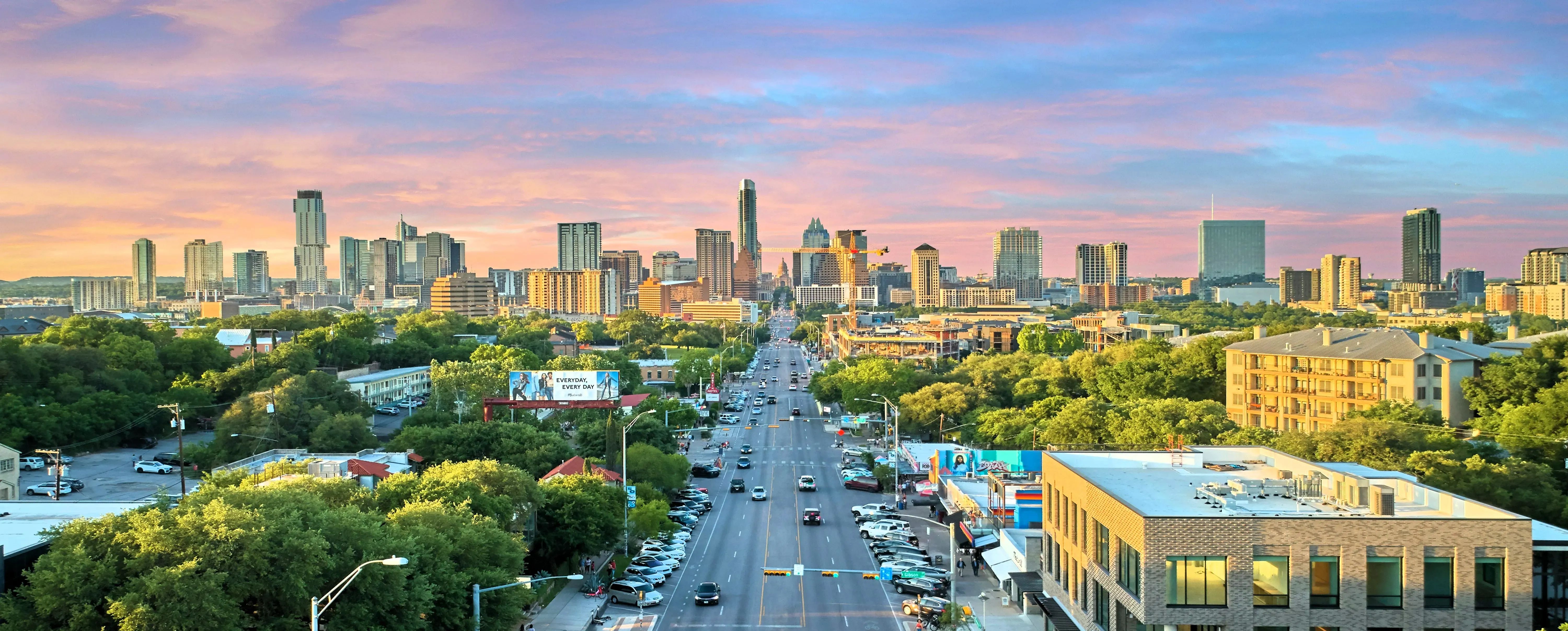
Overview: How Affordable Is Austin?
Austin’s cost of living is approximately 3% below the U.S. average, making it a relatively affordable major tech hub. This difference reflects the city’s evolving balance between growth and regional cost pressures. Payscale
For single individuals, the monthly cost of essentials (excluding rent) hovers around $1,116, while a family of four can expect approximately $3,984 per month before housing. Numbeo
Breakdown: What You’ll Spend (and Save)
Housing & Utilities
- Median home value is around $535,600, and median rent for a typical unit is roughly $1,609 per month. Payscale
- Utility bills (electricity, water, etc.) run about $204.70 monthly, slightly below the national norm. Payscale
Groceries & Food
- Overall grocery prices in Austin trend 4% lower than the national average. Payscale
- Sample local prices: loaf of bread ~$3.80, milk ~$4.53/gallon, eggs ~$3.43/carton, bananas ~$0.71 each, and a typical hamburger about $5.46. Payscale
Transportation
- Daily transport costs—like public transit fares or fuel—are about 5% lower than average nationwide. Payscale
- Gas prices sit close to $3.07 per gallon. Payscale
Healthcare
- Medical costs are 3% below national averages.
- Visit fees range: doctor ($115), optometrist (~$127), prescriptions around $20, and veterinary care roughly $64. Payscale
Summary Table
- Overall: ~3% below U.S. average
- Housing & Utilities: Mixed—housing slightly above, utilities below
- Groceries & Food: Lower cost
- Transport: Cheaper than average
- Healthcare: More affordable
Context: Affordability Rankings & Graduate Value
Austin ranks highly for affordability relative to income: it placed fifth in the U.S. for cost‑of‑living versus salary—only surpassed by other Texas cities like McKinney and Midland. Median household income here is about $91,500, while estimated annual cost of living is roughly $70,997.
Recent college graduates also benefit: Austin is a top-five U.S. city for hiring new grads, offering a median starting salary of around $58,400, combined with manageable living costs compared to coastal hubs. chron.com
Quick Snapshot for You
- Tech Professionals: Your salary, especially if aligned with national talent pools, can stretch further in Austin, thanks to cost advantages in groceries, transport, and healthcare.
- Singles & Young Urbanites: Renting or exploring neighborhoods like East Austin, SoCo, or Mueller, you'll find vibrant community living that doesn’t break the bank.
- Families: A family of four needs to budget close to $4,000/month for essentials (excluding housing), offering a clear baseline for planning.
Average Salaries in Tech – Austin, TX
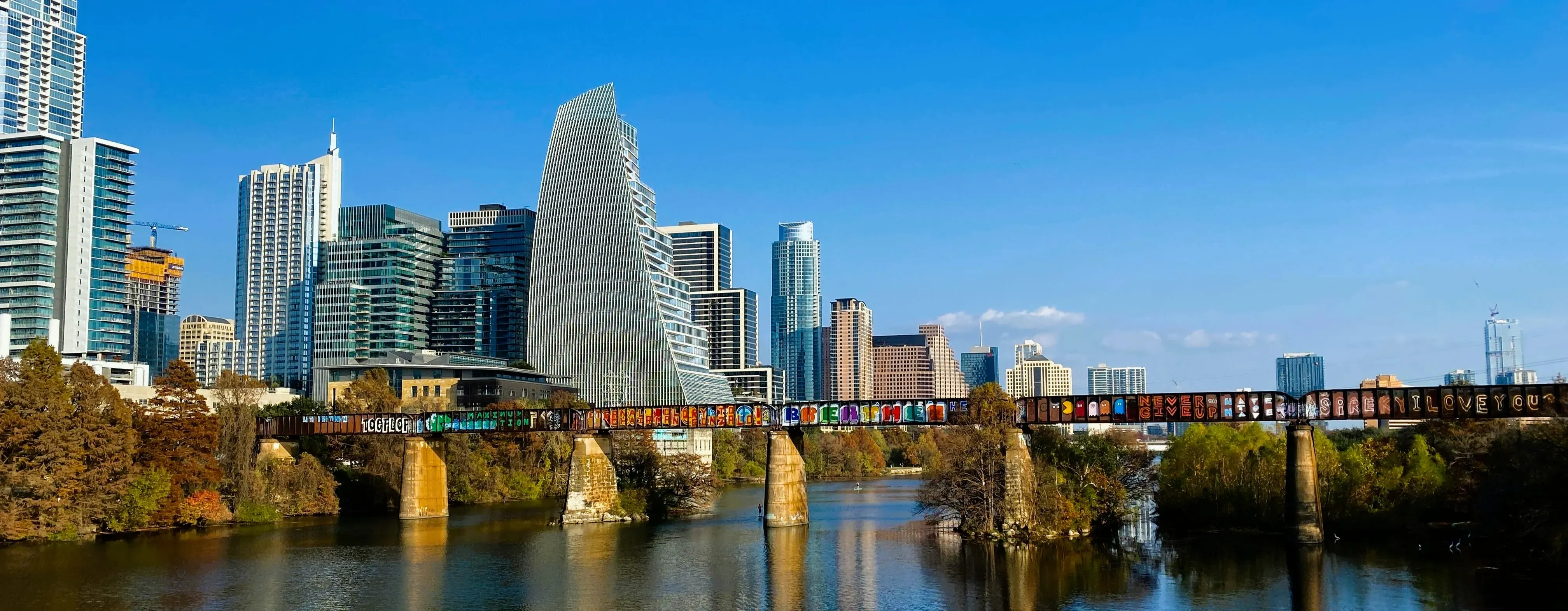
Broad Salary Landscape
Across all industries in Austin, the median annual salary is approximately $65,250, with 80% of salaries ranging between $31,320 and $152,250. This indicates a mid-to-upper tier earning potential for competent professionals in the local job market. (gusto.com)
Focused job roles show deeper insight:
- Vice Presidents top the charts with a median pay of ~$158,116, ranging from ~$72,560 at the low end to ~$240,450 at the high.
- Product Managers earn a median of $134,450.
- Software Engineers sit at $125,000 median.
- Data Scientists earn a strong median of $120,000. (gusto.com)
These figures reflect not just salaries, but also the competitiveness and demand for senior roles in Austin’s tech ecosystem.
Tech and Startup Salary Buckets
Built In’s data, reflecting tech & startup roles specifically, offers average salaries by category:
- Development & Engineering: $140,413
- Design & UX: $111,402
- Product Management: $140,424
- Marketing: $102,494
- Finance: $116,585
- Sales: $98,943
- Data & Analytics: $117,725 (builtin.com)
These numbers showcase how deeply competitive the tech sector in Austin is—developers and product pros pulling well above the citywide median.
What It Means—Insight for You
For Tech Professionals
- Engineers and product managers: Clearing well into the six-figure bracket, with robust average or median values near $140K, plus bonus and equity potential especially in startups.
- Designers and data folks: Also well-compensated—creative and analytical roles both command salaries north of $110K.
- Senior management: VP-level roles can easily stretch toward $160K–$240K, depending on experience and company.
- Technical vs overall: Tech roles outpace the general median significantly, reflecting Austin’s strong tech ecosystem and cost-of-living dynamics.
For Families & Lifestyle Seekers
- If your household brings in around $91,500 median income (as recent data suggests), you're right at Austin's middle-class threshold. SmartAsset defines middle-class income here as between $60,995 and $183,002.
- Dual-income tech households or high-earning singles (e.g., in product or engineering) are comfortably above that median, enabling flexible living, housing choices, and lifestyle investments.
Family-Friendliness

Schooling Options & Educational Landscape
Austin families enjoy a diverse array of schooling choices:
- Traditional Public Schools: These remain the most common, free to attend, and managed by local districts—about 81% of Texas K–12 students are in public schools. (turn0search6)
- Charter & Magnet Schools: Public and tuition-free, charter schools offer curricular innovation, while magnet schools focus on themes like STEM or arts. Both are publicly funded and operate under accountability systems.
- Alternative & Homeschooling: Options include Montessori-inspired or experiential programs with scholarship opportunities, especially helpful for families seeking alternatives to standard schooling.
- Online Public Education: Texas Connections Academy provides tuition-free, high-quality online learning for grades 3–12, with a strong track record of parental satisfaction. (turn0search16)
At the state level, a recent legislative push enables education savings accounts—a voucher-style program offering up to $10,500 per student annually, or $30,000 for special education, starting around the 2026–27 school year. Homeschoolers may receive $2,000.
Districts like Round Rock are gaining popularity for offerings like dual-language immersion, allowing families to choose schools beyond their neighborhoods.
Notable Private Schools:
- Headwaters School: Combines Montessori-style early education with the International Baccalaureate (IB) Diploma Programme; offers financial aid averaging around $7,343 to about 12% of students.
- Austin International School: An IB and French Baccalaureate bilingual school (French, English, Spanish) serving pre-K through 8th grade.
Childcare & Enrichment
- City-Funded Programs: The Austin Parks and Recreation Department delivers after-school initiatives that include healthy snacks, active play, enrichment, and homework help—on school days from about 3:10 to 6:00 p.m.
- Nonprofit & Community Services: The Greater Austin YMCA offers affordable childcare, youth sports, camps, and mental health support, serving families across a spectrum of needs.
- Childcare Resources: Through Workforce Solutions, families can connect with providers suited to their children’s age and care needs.
- Private Preschools & Early Learning:
- The Children’s Center of Austin provides programs for infants through pre-K, as well as after-school care and activities like STEM, art, yoga, and Spanish enrichment.
Parks, Recreation & Health Resources
- Dell Children’s Medical Center: The only Level I pediatric trauma center in Central Texas, offering comprehensive pediatric care and affiliated with Dell Medical School.
- Free School Meals: Many local school districts—including Austin ISD, Leander ISD, and Lake Travis ISD—participate in programs granting free school meals to qualifying students or all students under community eligibility rules.
What It Means for You
For Tech Professionals with Families
Austin caters beautifully to career-driven parents balancing tech ambitions and family care. Access to robust childcare, quality education (public or private), and top-tier pediatric care like Dell Children’s makes weekdays smoother and weekend adventures richer.
For Families Exploring Austin
From open enrollment and public charter options to bilingual immersion and unique pedagogical models (IB, Montessori, virtual schooling), there's flexibility to align your children’s learning path with your values and lifestyle.
Relocation Resources
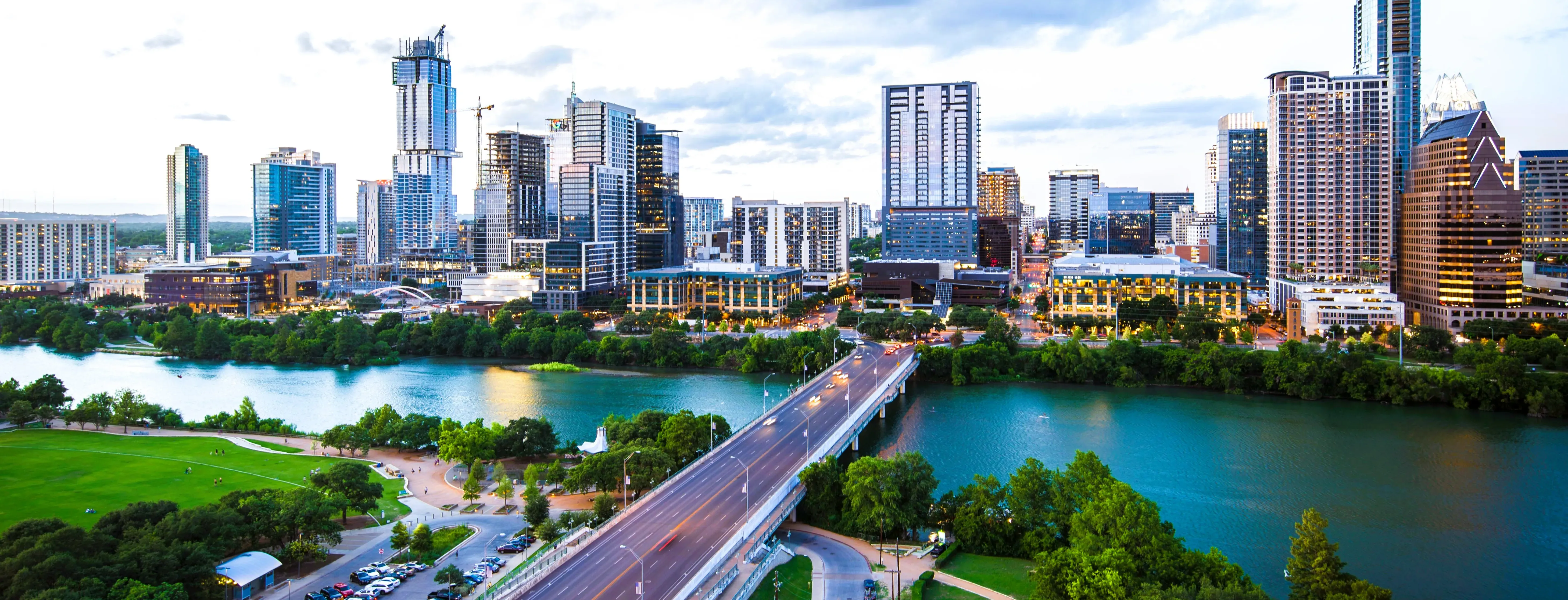
Short-Term Rentals (30 Days to a Few Months)
-
Blueground
Blueground specializes in furnished, move‑in‑ready apartments in key Austin neighborhoods like East Austin, North Loop, Zilker, and Barton Hills. Lease terms are flexible—starting at just 30 days—and suited for both individuals and families. Units are thoughtfully furnished with high-speed Wi‑Fi, fully equipped kitchens, Bluetooth speakers, and building amenities such as gyms and pools. Pets are often welcome, and there’s no broker fee, plus a supportive local team and user-friendly app.
Their “for business” apartments offer great value—typically 30‑50% less expensive than comparable hotels—while maintaining premium furnishing and enabling easy online booking, maintenance requests, and flexible duration. Ideal for corporate travelers and relocation transitions.
-
Airbnb
Airbnb also offers fully furnished rentals in Austin—including kitchens and Wi‑Fi—for monthly stays. These options are especially convenient for settling in with comfort and autonomy, whether you're coming for work or exploration.
Long-Term Rentals (Several Months to Indefinite)
-
Zillow
Zillow lists over 2,100 single-family homes for rent in Austin, with filter tools to refine by neighborhood, size, price, and more—making it a strong platform for longer-term rentals.
Relocation Agencies
-
UrbanBound
UrbanBound provides a relocation management platform that delivers a seamless employee experience while reducing administrative burden. Their system helps employees navigate housing searches, expense tracking, and other practical elements of relocation. Reports suggest UrbanBound can cut relocation program costs by up to 66%, making it a smart choice for HR teams as well.
-
Considering Austin (Austin Relocation Consulting)
Considering Austin’s service focuses on personalized support—from recommending neighborhoods that suit your lifestyle and commuting needs to advising on schools and local amenities. Their local expertise ensures tailored relocation guidance.
-
MoveCorp (Corporate Relocation Austin)
MoveCorp specializes in corporate moves in Texas, including Austin. They handle everything from office transfers to full city relocations, ensuring smooth transitions for professionals and teams.
-
Texas Relocation Experts
One of the largest free apartment-locating firms in Texas, they operate in Austin, San Antonio, Houston, and Dallas, connecting renters with suitable apartments at no cost. (texasrelocationexperts.com)
-
Austin Relocation Guide
A comprehensive, step-by-step online resource covering essentials like setting up utilities, enrolling in schools, obtaining licenses, vehicle registration, voter registration, pet rules, emergency planning, and more, a great independent tool to guide newcomers. (austinrelocationguide.com)
Job Market and Taxes
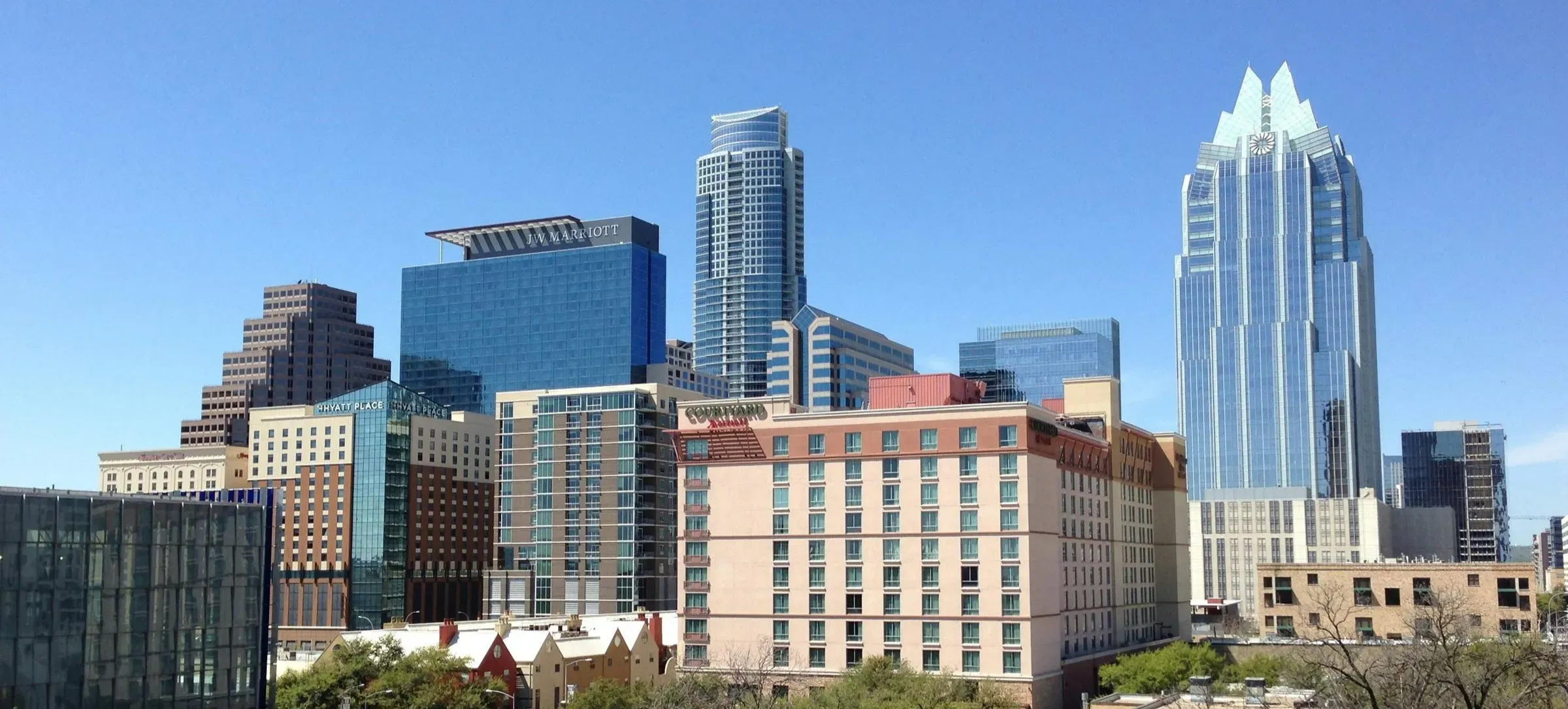
Current Tech Job Openings
Austin’s tech industry continues to boom, with consistent demand for skilled professionals across software engineering, DevOps, product management, data science, and UX/UI design. The city is home to headquarters or large offices for major players like Apple, Tesla, Oracle, Amazon, and Google, along with dozens of fast-growing startups and innovation hubs.
To explore active job openings specifically tailored for tech talent, we recommend browsing opportunities on TieTalent, where you can connect directly with hiring companies in the Austin area and across international markets.
Income Tax Overview in Texas
One of Austin’s most appealing financial perks? Texas has no state income tax. This makes your gross salary stretch significantly further compared to high-tax states like California or New York.
Here’s how it works:
- No State Income Tax: Neither individuals nor businesses pay state income tax in Texas.
- Federal Taxes Still Apply: You’ll still be responsible for U.S. federal income taxes, Social Security, and Medicare contributions.
- Sales and Property Taxes: Texas offsets the lack of income tax with relatively high sales tax (up to 8.25%) and property taxes. If you plan to buy a home, budget accordingly for annual property tax bills based on your home’s assessed value.
For employees relocating from abroad, this no-income-tax advantage makes Austin a financially smart entry point into the U.S. job market.
What It Means for You
For Tech Professionals
You can keep more of what you earn in Austin. With competitive tech salaries and no state income tax, your effective take-home pay outpaces many rival cities, even some with higher average gross salaries.
For Families & Long-Term Residents
Tax savings translate into extra budget for housing upgrades, school tuition, family travel, or savings. Texas’s relatively predictable tax structure also appeals to entrepreneurs and remote professionals seeking financial stability.
TieTalent: Where Teams Are Formed. Join for Free!